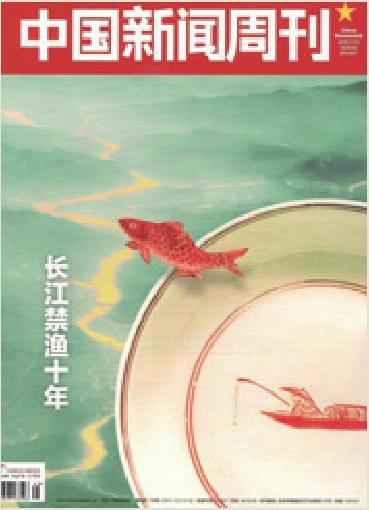TABLE TENNIS STAR WINS AGAIN
TABLE TENNIS STAR WINS AGAIN
Olympian Ma Long was presented the International Table Tennis Federation (ITTF)s Male Star award on December 11, winning the honor for the third time.
The 31-year-old started playing table tennis at the age of 5. He moved to Beijing to improve his game in 2001 and joined the national team two years later.
Ma has had a glorious career and is considered one of the best table tennis players in China. He won the mens singles at the World Cup in 2012 and 2015 and at the ITTF World Championships in 2015, 2017 and 2019.
After winning the mens singles at the 2016 Rio Olympics, Ma became the fi fth player to complete a career grand slam, winning the Olympics, World Championships and World Cup.
Improving Basic Education
Guancha.gmw.cn December 6
Chinese students topped the Organization for Economic Cooperation and Developments PISA tests last year.
PISA, or the Program for International Student Assessment held every three years, measures 15-year-olds ability to use their reading, math and science knowledge and skills to meet real-life challenges.
The average score of 15-year-old Chinese students from four cities and regions—Beijing, Shanghai and Jiangsu and Zhejiang provinces—ranked fi rst among 79 countries in three core academic subjects: reading, science and math.
The 2018 PISA tested about 600,000 15-year-old students from 79 high- and middleincome countries globally.
The test results show the progress in Chinas basic education. However, its too soon to be complacent about the results as the four Chinese areas that took part in the tests have more advanced education systems since they are more economically and socially developed. Given the large gaps between east and west China, and also rural and urban areas, in education, this result can hardly represent the overall standards in Chinas education system.
Also, test scores are not the sole criterion for judging education quality. The test showed that Chinese students study longer hours—31.8 hours per week, which ranks fourth among the countries and regions tested. Their study effi ciency and level of happiness are low. On the other hand, although UK students didnt score high in the test, their level of happiness ranked high.
The problems with Chinese education cannot be ignored just because one test has produced good results. The gap in education quality between urban and rural areas and between different schools and students heavy academic pressure still need to be addressed.
Protecting The Yangtze River
China Newsweek December 9
In 2012, there were only 1,040 finless porpoises in the Yangtze River, one of the very few porpoise species that live in freshwater, raising the alarm about the protection of the rare species.
As one of the rivers with the most biodiversity in the world, the Yangtze has over 4,300 aquatic species, of which 424 are fi sh.
However, the number of fi sh in the river has been declining sharply for reasons such as overfi shing.
The number of black, grass, silver and bighead carp, which are common freshwater fi sh in China, is less than 10 percent the number from the 1960s.
Today over 90 percent of Chinas freshwater products are cultivated. However, Cao Wenxuan, a fish biologist with the Chinese Academy of Sciences, said fish cultivated through artificial means need to be constantly supplemented with wild fi sh eggs for reproduction to ensure a sustainable population, and Yangtze fish are a precious gene pool for aquacultured fi sh. If Yangtze fi sh are not protected, there may be no fi sh to eat in the future.
Cao has been advocating a 10-year fi shing ban in the Yangtze since 2006 to let the river replenish its aquatic resources. This year, three ministries jointly issued a plan for a 10-year fi shing ban in the Yangtze starting in 2020.

However, its not easy to implement the ban as the Yangtze, the third longest river in the world, stretches over 6,300 km and passes through 11 provinces, municipalities and autonomous regions.
In addition, there are many other causes for the decline of aquatic life in the river. Construction of hydropower stations obstruct fish from going back to areas where they laid their eggs and change the water conditions of the river. Pollution is another factor.
To protect the Yangtze, the fi shing ban is just the beginning. More needs to be done.
Cultural Services for People With Disabilities
China Youth Daily December 10
Recently, the China Disabled Persons Federation and audio-sharing platform Ximalaya FM announced a plan to provide free cultural services to people with disabilities. Through the platform they can access over 200 paid items.
Its estimated that there are around 85 million people with disabilities in China, accounting for 6.3 percent of the population. There are many charitable activities to help them but effectively helping this group entails long-term work.
Though the Internet is changing peoples life, certain groups such as the elderly and people with disabilities often feel left behind by its rapid development. Internet companies can develop more creative models to help people with disabilities acquire knowledge and access cultural services. Audio programs are easy to access on mobile terminals and can meet some of their cultural needs.
Moreover, online platforms can analyze peoples requirements by studying big data and launching more programs to cater to them.
AGRO-SCIENTIST AWARDED IN AFRICA
Chinese agriculture expert Lin Zhanxi, along with five other Chinese experts, was awarded by Faustin-Archange Touadera, President of the Central African Republic (CAR), on December 1 for their contribution to the nations agricultural development.
Lin and his team from the National Engineering Research Center of Juncao Technology at Fujian Agriculture and Forestry University in southeast China went to CAR in March to show local farmers how to use the juncao technology—growing mushrooms on grass instead of wood. It is used to produce edible and medicinal mushroom by shortening the growth cycle and other innovations. The crop is used for human consumption as well as making animal feed, medicines and biomass fuel.
The 76-year-old has been at the forefront of developing and applying juncao technology, which contributed to poverty alleviation in China. Since 1992, the technology has been used in over 100 countries and contributed to the fi ght against desertifi cation, development of livestock and even production of electricity.
“An aging society and fewer children are among the main reasons for more Chinese keeping pets.”
Liu Xiaoxia, CEO of Goumin.com, an online pet community, commenting on a recent report that said urban residents in China will spend an estimated 202.4 billion yuan ($28.8 billion) on their pet cats and dogs in 2019, up 18.5 percent year on year
“Energy transition is a medium-to-long-term mission, and the fundamental driving force is technological progress, which will not happen overnight. Therefore, we must not have unrealistic expectations about energy transition.”
Zhao Changwen, Director General of the Department of Industrial Economy at the State Councils Development Research Center, commenting on a Bloomberg report that said China accounted for nearly two thirds of the fall in coal-fired power plant construction across the world in 2018
“Experiences from China can benefit organ donation and transplants in participants of the Belt and Road Initiative by catalyzing progress in medical technologies and services.”
Francis Delmonico, President of the World Health Organization Task Force, commenting on the recently established international cooperative alliance on organ donation among countries participating in the Belt and Road Initiative
“Engagement can lead to greater understanding and greater under standing can lead to further engagement... understanding each other makes life better and makes it easier to collaborate.”
Ken Wilcox, Chair of Asia Society Northern California, underscoring the importance of engagement and understanding between China and the U.S. at the 2019 Corporate Social Responsibility Forum in San Francisco on December 10

